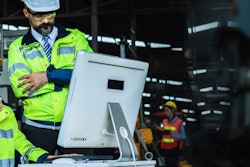
In 2025, the most disruptive force in the U.S. job market isn’t AI; it’s trade policy, according to a new survey from Qlik.
“Tariffs are no longer a background factor,” says Mike Capone, CEO at Qlik. “They’re reshaping hiring plans, altering supply chain strategies, and creating roles companies didn’t even know they needed six months ago. Employers are adapting quickly, but many are still operating without a clear picture of the skills available or the ones they’ll need next.”
Key takeaways:
· Among graduates in the class of 2024-25, 34% cite trade disruption as a key reason their job prospects have changed, putting tariffs on par with AI (33%). Meanwhile, 48% say jobs in their field are already being automated, and 66% have changed their career goals since January.
- 66% of graduates have already changed their career goals this year; 80% of graduates say they feel more confident in their career prospects than they did in January; 48% say jobs in their field are being replaced by automation; and 24% say roles are being eliminated entirely.
- 31% of companies plan to increase investment in supply chain and manufacturing despite trade volatility. Only 57% believe grads have the skills companies need today and 28% cite AI/automation literacy as a skill they’re struggling to hire.
- One in five businesses have created entirely new job roles in response to tariffs, including tariff mitigation strategist; reshoring program manager; AI lead; and supply chain resilience analyst.
- While firms are investing in tools like predictive analytics (40%) and automation (50%), 39% admit their internal data is still limited or incomplete
“This is where data has to lead. Workforce change is happening faster than most systems can track, and the cost of slow insight is rising. Business leaders need sharper signals to navigate volatility, and graduates need clearer visibility into what’s changing. Better data won’t solve every challenge, but it’s how you stop guessing and start planning,” adds Capone.














![Pros To Know 2026 [color]](https://img.sdcexec.com/mindful/acbm/workspaces/default/uploads/2025/08/prostoknow-2026-color.mduFvhpgMk.png?ar=16%3A9&auto=format%2Ccompress&bg=fff&fill-color=fff&fit=fill&h=135&q=70&w=240)



